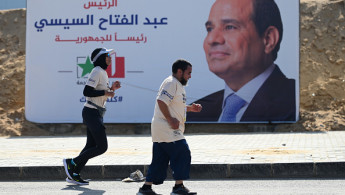Saudi firm plans hydrogen-powered skyscraper in Egypt's new capital
A Saudi-controlled real estate firm says it plans to break ground early next year in Egypt's new capital on a $1 billion, 50-storey office tower that aims to be the first of its kind to be powered by clean hydrogen.
The sophisticated design and high price tag represent a bet by Magnom Properties, a subsidiary of Saudi industrial group Rawabi Holding, that international clients will be drawn to the new capital, a city for over 6 million people being built from scratch in the desert east of Cairo.
It is also a bet on clean hydrogen, produced using renewable energy and not yet proven at scale, as Egypt seeks to position itself as a green energy hub in the face of regional competition.
Ministries transferred to the city from July 2023, but few residents have moved in and construction continues on infrastructure including rail links.
Magnom will soon start the detailed design of the Forbes International Tower and aims to complete the building by 2030, said Karim Dayhoum, the company's executive director of projects.
It purchased land for the tower in 2021 in the new capital's business district, and is selecting land for sister towers planned later for Dubai and Riyadh.
"We want to offer our tenants and our buyers and investors the opportunity to utilise the facilities and amenities across the region," Dayhoum said in an interview. "It's a network of sophisticated office space."
The new capital is the most ambitious in a series of mega-projects pursued by Egyptian President Abdel Fattah al-Sisi.
They have spurred infrastructure development but also strained the budget, increased debt and sucked up foreign currency, leading the government to cap public investment under pressure from the International Monetary Fund.
Investors say they see potential in Egypt's strategic position and large workforce, but the economy has long been hampered by mismanagement and weak productivity.
Critics say the new capital does not cater to ordinary Egyptians.
The $1 billion price tag for a single tower and high-luxury design are unusual for Egypt. The estimated investment cost of the rest of the Chinese-built business district, with 20 towers, is $3 billion.
Developed with media group Forbes and Chicago-based architects Adrian Smith and Gordon Gill, the tower will have advanced cyber security systems, two ultra-fast VIP elevators and a helipad, according to the plans.
It also aims to be the first net-zero carbon tower in the Middle East and North Africa. Solar panels embedded in the facade should produce 25% of the electricity it consumes, with the rest generated by clean hydrogen transported to the building in liquid form.
"We're trying to completely eliminate any sort of reliance on utilities," said Dayhoum, adding that buyers of land were receiving incentives for sustainable design.
That could also help protect from outages in the local grid; Egypt has been hit by chronic power cuts linked to natural gas shortages.
The tower will be financed through various debt equity instruments, said Ahmed Kassem, Magnom's chief investment officer.
"We're still at a group level discussing whether to retain full ownership of the building," he said.
(Reuters)




 Follow the Middle East's top stories in English at The New Arab on Google News
Follow the Middle East's top stories in English at The New Arab on Google News


![A group of Palestinians, foreign and Israeli activists gather to participated in an olive picking event on the land in the town of Battir, which is under threat of confiscation by Israel in Bethlehem, occupied West Bank on 8 November 2024. [Getty]](/sites/default/files/styles/image_330x185/public/2182930803.jpeg?h=199d8c1f&itok=__0LgGsa)